Rental Letter of Recommendation Template for Landlords
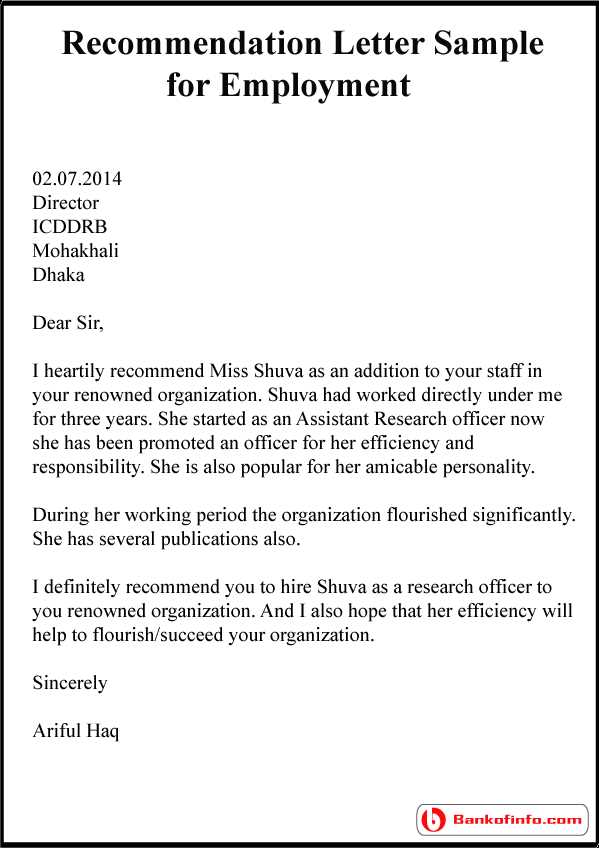
When a tenant applies for a new place to live, their previous landlord’s endorsement plays a crucial role in securing approval. A well-crafted reference can highlight the tenant’s reliability and responsibility, making it easier for potential landlords to make a confident decision. Crafting a persuasive endorsement can be straightforward if you focus on the right details.
In this guide, we’ll explore the essential components of a good reference and how to present the information clearly and effectively. By following a few key principles, you can create a compelling document that reflects positively on the tenant while maintaining professionalism and clarity.
What is a Rental Recommendation Letter
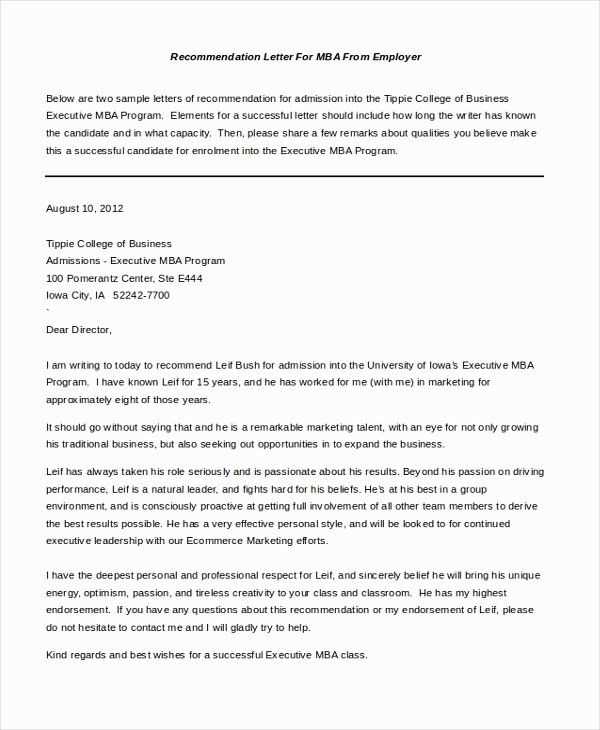
In the rental market, a well-written endorsement from a previous landlord can significantly impact a prospective tenant’s chances of securing a new place. This type of document serves as a testament to the tenant’s behavior, responsibility, and suitability for tenancy. It provides future landlords with a clear understanding of the applicant’s rental history and character.
Purpose and Importance
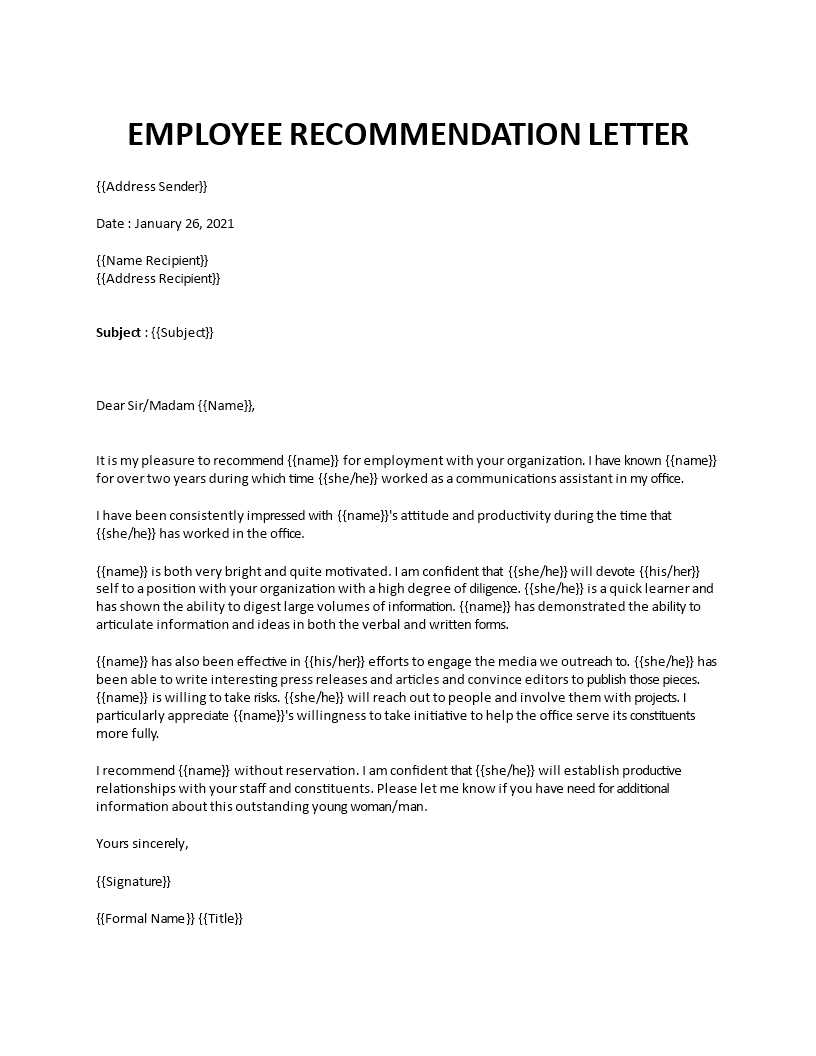
Such a reference aims to establish trust by highlighting the tenant’s positive qualities, including timely payment of rent, care of the property, and overall reliability. It helps landlords make informed decisions, reducing the risk of leasing to someone with a poor track record. A strong recommendation can often be the deciding factor in whether a potential tenant is approved.
When Is It Needed?
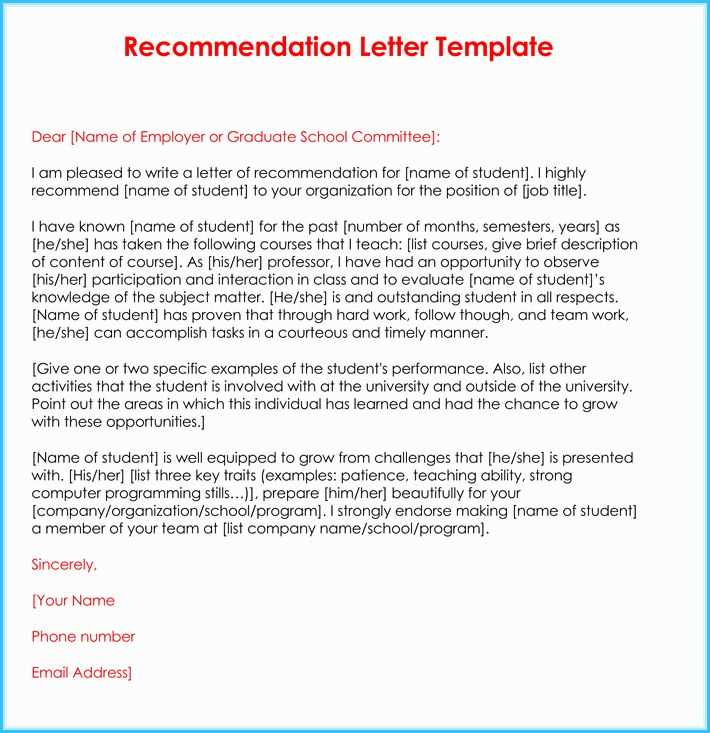
This document is typically requested when a tenant moves to a new rental, especially if they do not have a long history or have limited credit. It’s also beneficial when a tenant wishes to demonstrate their commitment and suitability, particularly in competitive markets. Landlords or property managers may ask for such references to ensure that the tenant has proven themselves as responsible and trustworthy in prior agreements.
Importance of a Good Reference Letter
Providing a positive endorsement for a tenant is crucial in helping them secure a new home. A well-crafted document highlights the tenant’s responsible behavior, offering reassurance to future landlords about their reliability. A strong reference can be a key differentiator in a competitive housing market, where many applicants may be vying for the same property.
Clarity and trust are at the heart of a good endorsement. When the letter outlines key qualities such as timely payments, property care, and respect for lease terms, it helps future landlords build trust before even meeting the applicant. This can make all the difference in getting approved.
Moreover, a well-written reference serves as a form of social proof, demonstrating that the tenant has met expectations in previous agreements. This not only boosts the tenant’s credibility but also gives landlords confidence that they are making the right choice. A carefully thought-out endorsement can make a prospective tenant stand out in a crowded field of applicants.
How to Write a Rental Recommendation
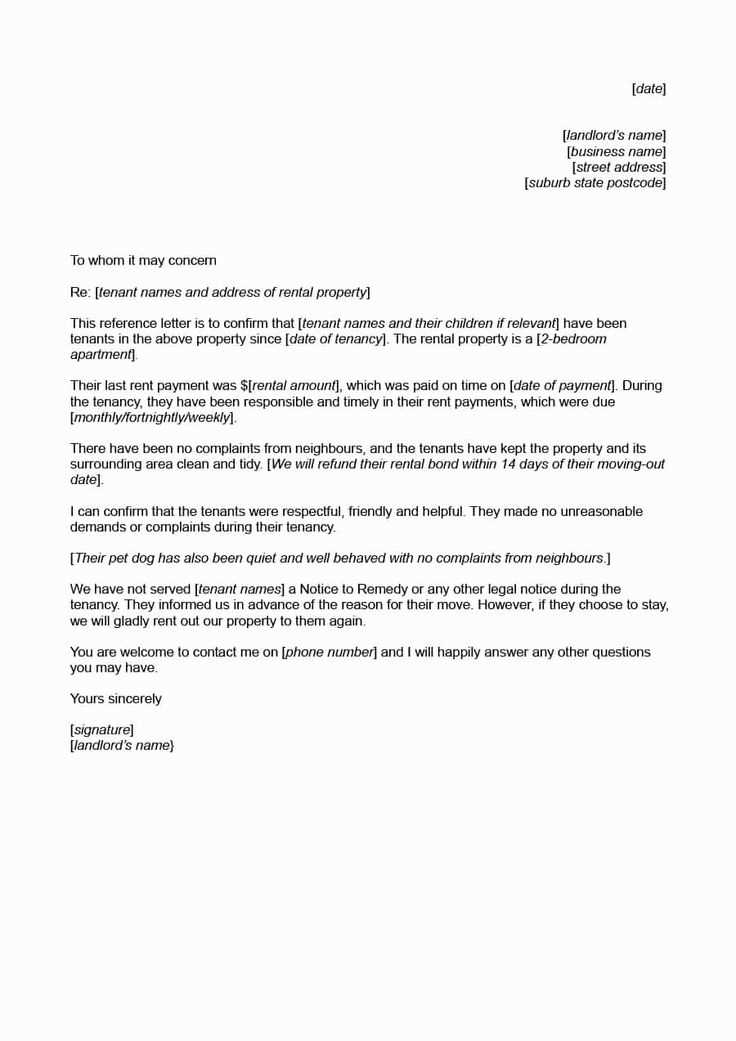
Writing an effective endorsement for a tenant involves highlighting their positive traits and providing specific examples of their behavior and reliability. A clear and concise statement can greatly influence the decision of a future landlord, so it’s important to focus on the most relevant information that demonstrates the tenant’s trustworthiness.
Step-by-Step Guide
Follow these steps to craft a strong and compelling endorsement:
- Introduce the Tenant: Start by stating your relationship with the tenant, including how long you have known them and in what capacity.
- Highlight Key Qualities: Focus on attributes such as timely payments, property care, and respectful behavior toward neighbors.
- Provide Specific Examples: Use concrete examples to show the tenant’s reliability, such as paying rent on time or maintaining the property in good condition.
- Conclude with a Strong Endorsement: Summarize why you believe the tenant would be a great fit for any future property and offer your contact information for further inquiries.
What to Avoid
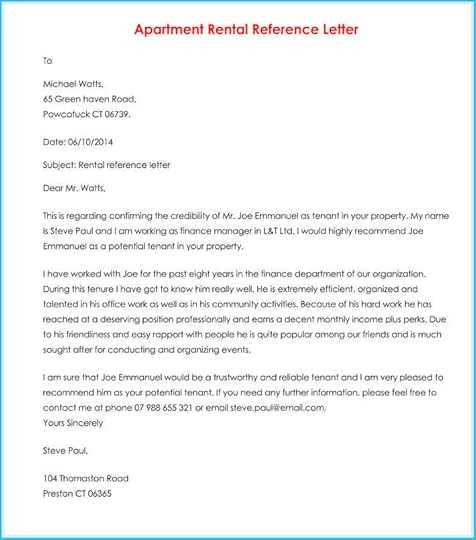
While writing a reference, avoid overly general statements or anything that could be perceived as an exaggeration. Stick to the facts and ensure that all claims are truthful and backed up by real examples. Additionally, refrain from mentioning personal information unrelated to the tenant’s tenancy.
Key Information to Include in Your Letter
When crafting an endorsement for a tenant, it is essential to include specific details that accurately reflect their behavior and character. A strong reference should provide future landlords with a clear picture of the applicant’s reliability, responsibility, and suitability for a new home. Including the right information helps build trust and supports the tenant’s application.
Make sure to include the following key details:
- Duration of Tenancy: Specify how long you have known the tenant and the length of their stay at the property.
- Payment History: Highlight the tenant’s record of paying rent on time and in full.
- Property Maintenance: Mention how the tenant cared for the property, including any regular maintenance or upkeep they performed.
- Respect for Rules: Discuss the tenant’s adherence to the lease agreement and respect for neighborhood rules or property guidelines.
- Personal Character: Include any relevant details about the tenant’s reliability, trustworthiness, and personal integrity.
By covering these aspects, you provide a well-rounded, factual account of the tenant’s history and qualities, strengthening their application and increasing their chances of securing a new place to live.
Common Mistakes to Avoid in Letters
While writing an endorsement for a tenant, it’s crucial to avoid certain pitfalls that can weaken the message or create confusion. A poorly written reference can hurt the tenant’s chances of securing a new home. Being mindful of common errors ensures the letter presents the tenant in the best possible light.
Here are some common mistakes to avoid:
- Vague or General Statements: Avoid overly broad or non-specific comments that don’t provide any real insight into the tenant’s behavior. Specific examples help create a stronger impact.
- Exaggeration: Stay truthful in your description. Overstating the tenant’s qualities can lead to unrealistic expectations and might harm the tenant’s reputation if they are unable to live up to the claims.
- Failure to Focus on Key Qualities: Focus on the aspects that matter most to landlords, such as timely rent payments and property care. Irrelevant details can distract from the main purpose of the letter.
- Too Much Personal Information: Keep the letter professional. Avoid including personal details unrelated to the tenant’s ability to be a responsible renter, such as their family life or unrelated personal issues.
- Omitting Contact Information: Ensure the reader can reach you for further questions. Failing to include your contact details may make the endorsement less credible.
By steering clear of these mistakes, you can create a clear, honest, and professional reference that enhances the tenant’s application.